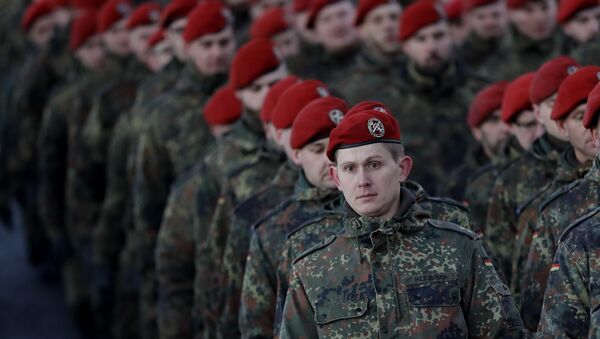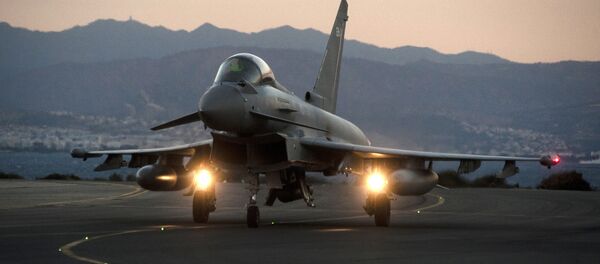Sputnik discussed this with Michael Moran, CEO and Chief Research Officer at Transformative.io, Visiting Media Fellow for Peace and Security at Carnegie Corporation of New York and Adjunct Professor at Bard College Globalization and International Affairs.
Sputnik: The Defense Ministry's report comes after the Bundestag's military commissioner complained about “large holes in personnel and equipment,” so what kind of military gaps are we talking about here and does Germany have the resources to close these gaps?
Michael Moran: Germany has underinvested in its military for decades, really, this dates back to the end of the Cold War, there was a lot of talk of peace dividends in those days, the United States very quickly became embroiled in the Middle East and it's talk of peace dividends really kind of disappeared, but for the Germans and for many other Western European militaries there was a very real shift of funds and attention away from defense and toward other things, so it's not surprising that essentially Cold War era equipment has very high maintenance cycles, it comes down to, as the old American saying, “you get what you pay for.”
READ MORE: (No) Smoking Gun: Almost Half of German Army's Weapons Unfit for Duty — Report
Sputnik: So this is nothing really new, there was nothing particularly disturbing about this report because the state of things was known?
Michael Moran: Let's not forget, as in most of these European militaries there is an elite well-equipped, well-maintained cadre that is deployable and of course the Germans are among the nations taking part in the deployments in the Baltics and in Poland, those troops are going to be their best and they were quite capable, they are also, in many ways, looking at any European-NATO military absent NATO itself it's kind of a silly exercise, because the power of the kind of US-led NATO alliance is the fact that its networked, every troop, every weapons system is a node in this massive borg. Germany, really, it is a constituent part of a much more capable and much more well maintained institution.
Sputnik: What consequences could this have for Germany's military position abroad?
Sputnik: What you've just said, of course, ties in with US President Trump previously scolding NATO members, including Germany, for not spending enough on defense. So does this have any impact at all on US-German relations, or is this the state of affairs where everyone's come to regard as the norm?
Michael Moran: When you become US Defense Secretary one of your first jobs is to go to Europe and tell them they don't spend enough on military equipment, the only difference with Trump is that he does it in undiplomatic language, and really doesn't understand frankly the issues, he just sees the ledger, so that relationship is unlikely to be harmed by that specific issue, there are other issues to do with the larger globalization and trade policy tone coming out of Washington that have hurt US-German relations much more than this will.
READ MORE: Germany to Triple Number of Soldiers in NATO Drills Near Russia — Reports
Sputnik: Germany is said to head the NATO Rapid Response in 2019, is it going to be able to do this considering these gaps, these military shortages?
Michael Moran: I think it will, again, that is not a large unit, they have within their capabilities the ability to deploy a small but powerful force overseas. You know, they're not as expeditionary ready as the British and the French, but they certainly have the ability and they did it in Afghanistan already. The political will in Germany to do such things is the real question and that's where you always come back to. You know, the Germans after the Second World War were subjected in the Western zones especially to a real pacification program that went on for decades, and it is still a very deeply-seated and very successful program from the standpoint of those who wanted Germany never again to become a militaristic threat to Europe.
Sputnik: What about the internal political debate in Germany, how important is the military and military spending to it, and now, of course, we have this new governing coalition there, is it likely to approve additional funds for the military budget?
Michael Moran: I think there will be an increase, there seems to be a budget deal in track right now, but it's not officially approved because the coalition itself is just forming. The tone of the remarks that I'm seeing out of Germany suggest that a lot of the complaining about the state of readiness of the German military is being used as a political battering ram against political opponents domestically, there seems to be less interest in the actual issue of whether or not Germany's military is ready for action than the question of who let Germany's military come to this state.
The views and opinions expressed by Michael Moran are those of the speaker and do not necessarily reflect those of Sputnik.




